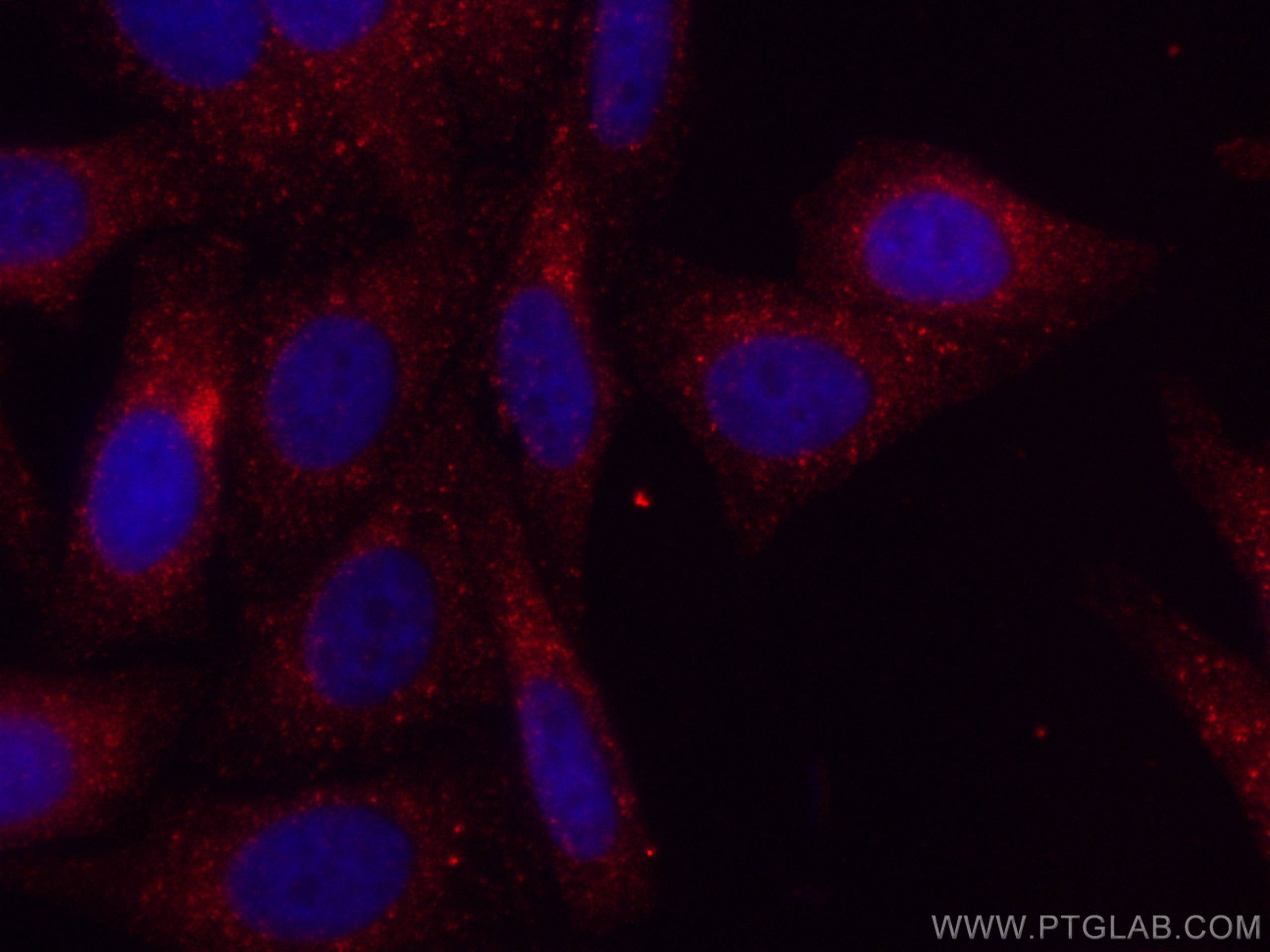COMMD1 Monoklonaler Antikörper
COMMD1 Monoklonal Antikörper für IF
Wirt / Isotyp
Maus / IgG1
Getestete Reaktivität
Hausschwein, human, Maus, Ratte
Anwendung
IF
Konjugation
CoraLite®594 Fluorescent Dye
CloneNo.
3B10E10
Kat-Nr. : CL594-67016
Synonyme
Galerie der Validierungsdaten
Geprüfte Anwendungen
| Erfolgreiche Detektion in IF | HepG2-Zellen |
Empfohlene Verdünnung
| Anwendung | Verdünnung |
|---|---|
| Immunfluoreszenz (IF) | IF : 1:50-1:500 |
| Sample-dependent, check data in validation data gallery | |
Produktinformation
CL594-67016 bindet in IF COMMD1 und zeigt Reaktivität mit Hausschwein, human, Maus, Ratten
| Getestete Reaktivität | Hausschwein, human, Maus, Ratte |
| Wirt / Isotyp | Maus / IgG1 |
| Klonalität | Monoklonal |
| Typ | Antikörper |
| Immunogen | COMMD1 fusion protein Ag28596 |
| Vollständiger Name | copper metabolism (Murr1) domain containing 1 |
| Berechnetes Molekulargewicht | 190 aa, 21 kDa |
| Beobachtetes Molekulargewicht | 18 kDa |
| GenBank-Zugangsnummer | BC022046 |
| Gene symbol | COMMD1 |
| Gene ID (NCBI) | 150684 |
| Konjugation | CoraLite®594 Fluorescent Dye |
| Excitation/Emission maxima wavelengths | 588 nm / 604 nm |
| Form | Liquid |
| Reinigungsmethode | Protein-G-Reinigung |
| Lagerungspuffer | BS mit 50% Glyzerin, 0,05% Proclin300, 0,5% BSA, pH 7,3. |
| Lagerungsbedingungen | Bei -20°C lagern. Vor Licht schützen. Aliquotieren ist bei -20oC Lagerung nicht notwendig. 20ul Größen enthalten 0,1% BSA. |
Hintergrundinformationen
COMMD1(COMM domain-containing protein 1), also named MURR1, is implicated in copper homeostasis by binding one copper ion per monomer. COMMD1 was reported to accelerate the ubiquitination and degradation of NF-kappa-B subunits, its deficiency exerts enhanced NF-kappa-B mediated celluar response. Ubiquitinated by XIAP (X-linked inhibitor of apoptosis), COMMD1 undergoes proteasomal degradation. SOD1 activity can be downregulated by COMMD1.
Protokolle
| Produktspezifische Protokolle | |
|---|---|
| IF protocol for CL594 COMMD1 antibody CL594-67016 | Protokoll herunterladen |
| Standard-Protokolle | |
|---|---|
| Klicken Sie hier, um unsere Standardprotokolle anzuzeigen |


